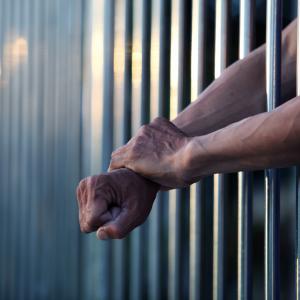Posts By This Author
Getting to Work
1. Awakening:
It is impossible to build a transformative movement for justice if people remain in the dark about the magnitude of the crisis at hand, its origins, and its racial, economic, and political dimensions. I wrote The New Jim Crowbecause I strongly suspected that most people simply had no idea what was really going on and that education was a necessary prerequisite to effective action. I still believe that’s the case, and so urging people of faith and conscience to commit themselves to raising the consciousness of their congregations and communities is extremely important.
Encourage people to hold study groups, film screenings, public forums, and dialogues to help others awaken to what has happened on our watch and become motivated to join the movement. The Unitarian Universalists, the Samuel DeWitt Proctor Conference, Veterans of Hope, and PICO are all engaged in consciousness-raising work and have created study guides based on The New Jim Crow and other resources.
2. Building an Underground Railroad:
Obviously, consciousness-raising is not enough—we will have to get to work. In my view, that necessarily involves building an “underground railroad” for people trying to make a break for true freedom in the era of mass incarceration and who desperately need help finding shelter, food, work, and reunification with their families.
How to Dismantle the 'New Jim Crow'

Photo via sakhorn / Shutterstock
I HEAR A STIRRING, a rumbling. An awakening. Sometimes the sound is so faint, I worry it’s my imagination, my optimism getting the best of me. I pause, listen, and wait. Here it comes again. I want to rush to my window, fling it open, stick my head way out, and look around. Is it happening? For real this time? Is the sleeping giant finally waking up?
God knows we’ve slept too long.
Many of us—myself included—slept through a revolution. Actually, it was a counterrevolution that has blown back much of the progress that so many racial justice advocates risked their lives for. This counterrevolution occurred with barely a whimper of protest, even as a war was declared, one that purported to be aimed at “drugs.”
Really, the war took aim at people—overwhelmingly poor people and people of color—who were taken prisoner en masse and then relegated to a permanent, second-class status, stripped of basic civil and human rights such as the right to vote, the right to serve on juries, and the right to be free from legal discrimination in employment, housing, and access to education and public benefits. Branded “criminals” or “felons,” millions of people discovered that the very rights supposedly won in the civil rights movement no longer applied to them.
When the Spirit Says Go
The fight against mass incarceration is joined by an emerging faith-based movement.
Cruel and Unequal
Blacks and whites use drugs at about the same rate, yet African Americans are 10 times as likely to be imprisoned for drug offenses. The unbalanced effects of the 'war on drugs.'
